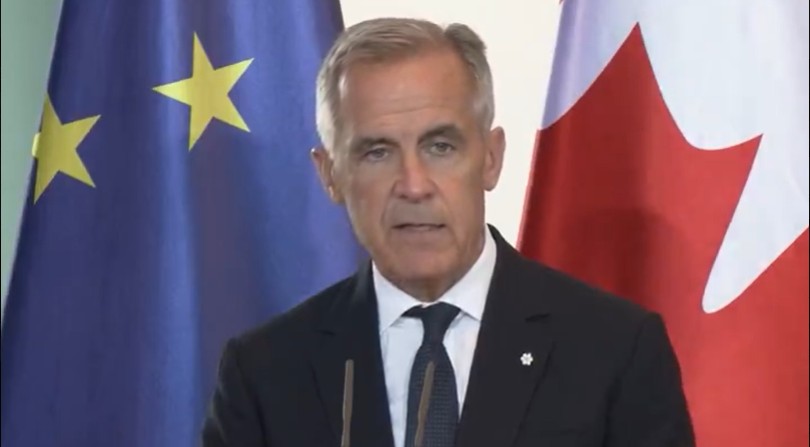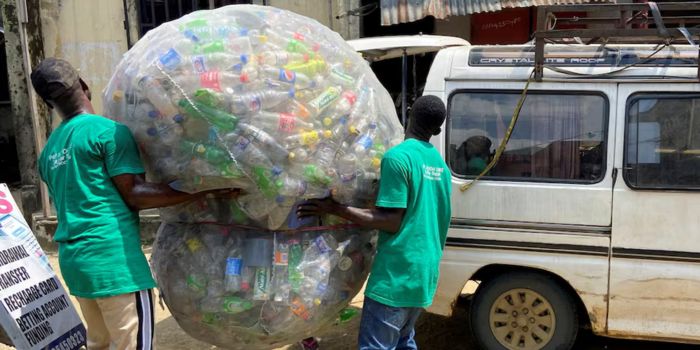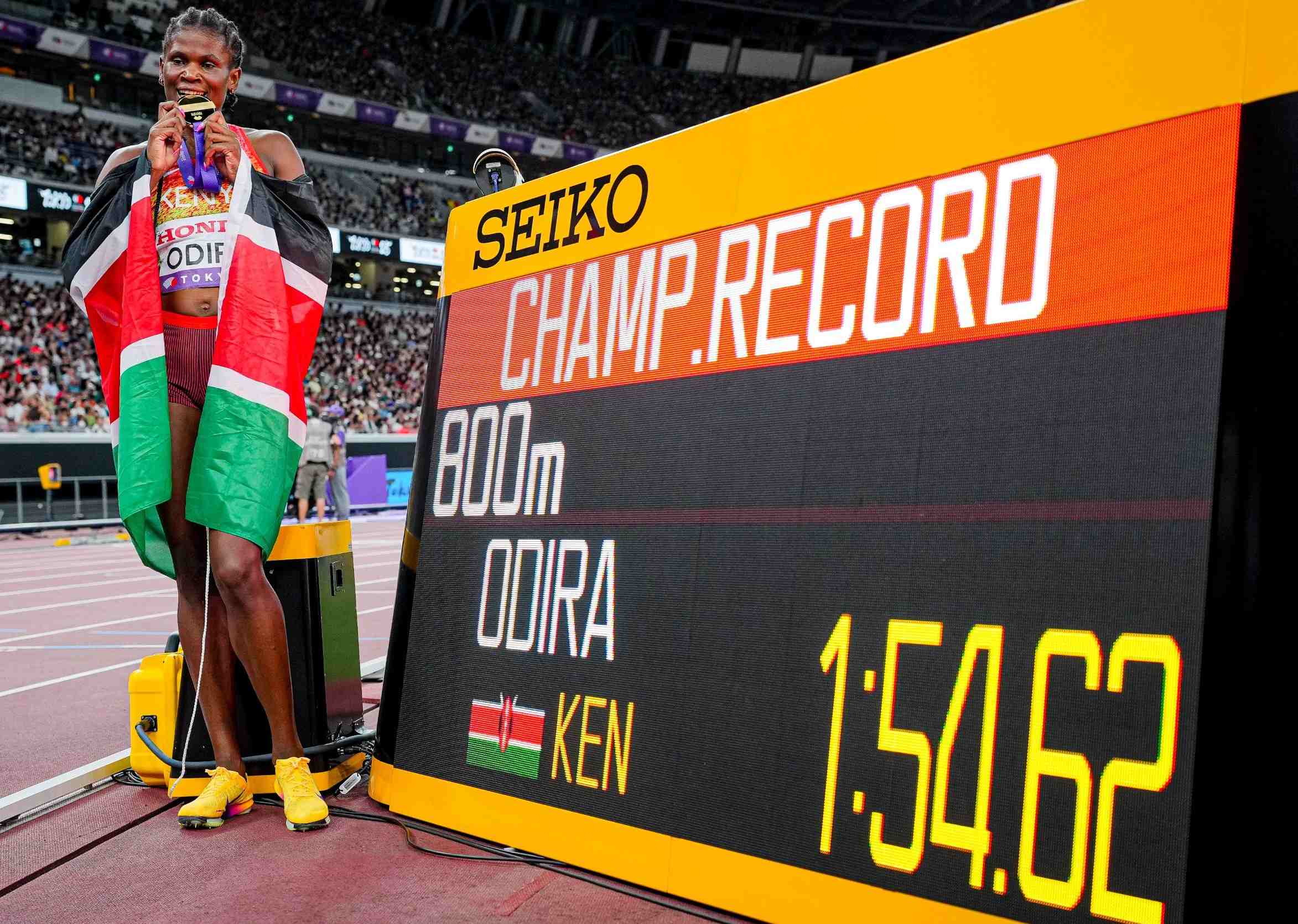Sakaja’s dream of order, dignity, and opportunity in Nairobi remains elusive

Matatus have taken over almost every inch of Tom Mboya, Ronald Ngala and Mfangano streets, and parts of Moi Avenue
On a sunny August afternoon in 2022, just before 2 pm, Johnson Arthur Sakaja stood on the steps of KICC, ready to be sworn in as Nairobi’s fourth governor.
His campaign was built on a promise to transform Nairobi into a city of order, dignity, hope, and opportunity.
More To Read
- Nairobi eases debt burden by cutting pending bills by Sh35 billion
- Githurai MCA’s resignation threat over ghost projects exposes Nairobi County governance gaps
- Governor Sakaja revives County Policing Authority to tackle rising crime
- Senators threaten legal action after Sakaja fails to attend oversight meeting
- Governor Johnson Sakaja blames Treasury for delayed county salaries
- Nairobi to appoint six borough managers to enhance service delivery
Sakaja pledged to address ten major issues:
A city of hope: He promised to create a Nairobi where every Kenyan could live peacefully, achieve their goals, and secure a future for their children.
City metro commuter light rail: Sakaja planned a light rail system for the CBD to reduce congestion and improve public transport.
Cleanliness: He aimed to implement an e-waste disposal system and upgrade sewerage projects to keep the city clean.
Decentralised public services: By dividing Nairobi into five administrative blocks, Sakaja hoped to improve service delivery and resource management.
Water supply: He committed to ending the city's water shortages by developing a reliable infrastructure system for clean water.
Upgraded public amenities: He promised to improve public toilets, water points, street furniture, and bus-stop shelters to restore the city’s dignity.
Inclusivity: Sakaja vowed to create programmes for children and people with disabilities to make Nairobi more inclusive.
Sports complexes: To support youth development, he proposed building sports complexes in each sub-county and launching the annual Sakaja Cup tournament.
Electronic business permits: Sakaja planned to introduce a single electronic business permit to streamline processes, reduce corruption, and boost city revenue.
Free school lunches: He promised to provide free lunches to students in public primary schools to improve transition rates among vulnerable households.
Two years later, many of these promises remain unmet, leaving residents struggling with persistent issues.
Drainage menace
Despite Nairobi residents' unending hopes for an upgraded drainage system every time before rains come, their expectations are never met.
This recurring issue turns the capital's streets into an obstacle course, compelling residents to navigate flooded roads by wading, slogging, hopping, skipping, and even using makeshift trolley pullers during the rainy seasons.
The insufficiency of the drainage system becomes evident whenever the rains expose its outdated and dysfunctional state.
Governor Sakaja admitted that flooding remains an uphill task which needs a lot of investment for proper drainage.
Hawkers
For decades, managing hawkers in the CBD has been a challenge for successive administrations.
To address this ongoing issue, Sakaja's administration in 2023 designated specific lanes for hawkers to use.
A team from City Hall inspected various lanes in the lower CBD, started marking them, and cleared dirt to make them suitable for trade. The lanes were marked and numbered.
However, no hawkers have been relocated, and they continue to occupy the limited spaces available in the City centre.
On October 25, 2023, City Hall ordered a crackdown on hawkers in the CBD to control their presence.
“There will be no hawking on the road. I'm enforcing it from tomorrow (Thursday) morning, even around the bus station. I will not allow that. Nairobi will be a city of order and dignity. There will be no hawking on roads and that is not negotiable,” Sakaja said.
The crackdown, which lasted only two days, did not provide a solution.
Hawkers continue to swarm the CBD, blocking roads and pavements, crowding out pedestrians, contributing to garbage problems, and obstructing business entrances, which affects legitimate traders.
“Removing us from the streets is almost impossible. No leader, including the national government, can manage us. They should just let us operate freely,” said Mama Mukami, a hawker at Afya Centre on Tim Mboya Street.
“Those lanes cannot accommodate all of us. We also have our targeted customers who are found on specific streets,” said Tom Munyao, a hawker on Ronald Ngala Street.
Unruly matatus
The matatu sector in Nairobi's central business district is known for its chaos and difficulty in managing.
Over time, matatus have taken over almost every inch of Tom Mboya, Ronald Ngala, Mfangano streets, and parts of Moi Avenue as their unofficial stages.
This has led to constant traffic jams and reduced space for other drivers and pedestrians.
On Ronald Ngala, groups of touts aggressively pull passengers, often creating more hassle than help.
The crowded streets have also become a hotspot for pickpockets and muggers who thrive in the disorder.
Two years into Sakaja’s tenure, traffic congestion remains a problem. The CBD is still choked with matatus, and new unregistered bus stages continue to pop up, making the situation worse.
“We used to operate at Railways, but we were kicked out by the government in 2021, so we had to find space for our sacco since commuters need to get to town and back home, and as a sacco, we also need to earn,” said James Ngugi who operates a matatu operator on the Kitengela route.
“The CBD has become so chaotic that as soon as you arrive, you just want to leave. The matatus are everywhere, hooting, and their touts are all over. There is no order at all,” said Sharon Saya, a commuter.
Governor Sakaja had shown interest in moving long-distance PSVs from the CBD in late 2022 and early 2023. But the decision led to a disagreement with Deputy President Rigathi Gachagua, who urged him to consult before making decisions that might harm the businesses of Mt Kenya people who supported him.
The courts have since stopped the relocation of matatus from the CBD to Green Park terminus.
Garbage menace
A day after taking office last August, Governor Sakaja pledged to tackle Nairobi’s garbage problem.
He began his tenure with a tour of the city, starting in the Mukuru slums which were overwhelmed with waste after the campaign season.
"I’ve issued firm instructions to resolve the garbage crisis across Nairobi within days," Sakaja said while in Mukuru.
Nairobi produces 3,000 metric tonnes of waste daily, most of which ends up at the Dandora dumpsite.
Two years after Sakaja’s promise, The Eastleigh Voice notes that the city’s garbage problem is far from resolved. Streets, walkways, bridges, and markets are still covered in rotting trash, creating a serious health hazard.
To address the issue, the county promised to build a waste energy processing plant at the Dandora dumpsite, which is already overfilled with 1.8 million tonnes of waste, exceeding its 500,000-tonne capacity.
Although City Hall issued an expression of interest for the plant in January 2023, no construction has started, raising doubts about the project's progress.
Water rationing
Over four million Nairobi residents are facing water rationing, with some estates experiencing dry taps for up to a week. This has forced residents to turn to water vendors who sell a jerrycan of water between Sh20 and Sh30.
“I can’t remember the last time I had free-flowing water for 24 hours without interruption. I have been forced to buy tanks to store water because the rationing gets worse every year,” said Anne Chebet, a resident of Umoja One.
“Money to buy water is always included when doing the monthly budget because the taps are always dry and when we get running water it doesn’t last,” said Hussein Ali, a Pumwani resident.
The city needs 770 million cubic meters of water daily, but the Nairobi City Water and Sewerage Company only supplies 520 million cubic meters.
Despite Governor Sakaja’s promise to end water rationing, no projects have been completed to improve the city’s water supply.
The long-awaited Northern Water Collector Tunnel, which was expected to supply more water to the city, is still not complete.
Modern markets
Nairobi has 42 markets, which are insufficient for traders, leading many to hawk on city streets. To address this, Sakaja promised to build 20 modern markets by 2027.
The Sh244 million Mutuini market in Dagoretti South, whose building started in February, is the first under his administration.
While these modern markets are designed to tackle issues like fires, outbreaks remain a problem. This month, four markets were destroyed by fires, with no investigations into the causes.
On August 2, 2024, a market near Thika Road Mall caught fire, followed by fires at Toi Market and Umoja Open Air Market on August 3. Mathare 5A Market and Kayole Market were also destroyed on the same day.
Pending bills
Pending bills have been a major issue since devolution. As of July, City Hall had over Sh107 billion in pending bills, including Sh21 billion in legal fees. Sakaja has vowed not to pay these bills, causing them to continue accumulating.
"Some of the claims are questionable, and paying them would halt crucial county services. Sh21 billion is higher than our equitable share and twice our own-source revenue. Many are suspicious," he said.
Sakaja said the county would not pay Sh15 billion pending bills from the defunct Nairobi Metropolitan Service (NMS) saying they belong to the national government.
School feeding project
Since its launch in August 2023, the Dishi na County programme which started with ten central kitchens now feeds 310,000 students.
Seven additional kitchens are under construction, further enhancing Nairobi’s commitment to tackling educational and nutritional challenges.
Revenue growth
Under Sakaja’s leadership, Nairobi's revenue reached Sh12.8 billion in the 2023-2024 financial year, despite a target of Sh20.06 billion. This is the highest revenue since devolution. Sakaja credited digitisation and reduced waste for this achievement.
The previous year's revenue was Sh10.6 billion, with Sh8.9 billion collected in FY 2021-22 and Sh8.5 billion in FY 2019-20, falling short of targets each year.
Political reactions
Nairobi County Assembly’s Minority Leader Antony Kiragu praised Sakaja for maintaining political balance.
“The governor has effectively addressed the issues facing the county. The lack of conflicts is due to the assembly’s focus on key issues for residents rather than partisan agendas. Despite some concerns, Sakaja has delivered for
the city,” Kiragu said.
Majority Leader Peter Imwatok said the Azimio coalition is committed to supporting Sakaja's agenda while Deputy Minority Leader Waithera Chege criticised the administration for not fulfilling its promises.
“The UDA party made a mistake. The governor has not prioritised Nairobi; there is nothing substantial to discuss because he has not delivered,” he said.
With three years to go, Nairobi residents hope that Sakaja will fulfil his promises and bring about meaningful change.
Top Stories Today











































